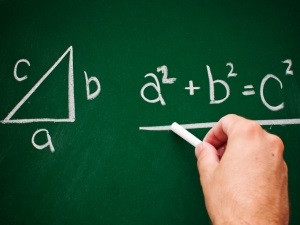
Despite government's interventions in recent years, SA's school pupils are still struggling with mathematics, with the Department of Basic Education's (DBE's) Annual National Assessments (ANA) revealing a dismal 10.8% average performance for grade nine pupils.
The subject, considered pivotal to the country's future ICT skills pool, has recorded low figures at this level over recent years, with last year's crop of grade nines recording a 14% average, slightly up from 13% in 2012. Since its introduction in 2011, the ANA aims to gauge the impact made by the education system in improving numeracy and literacy.
Speaking during a briefing yesterday, basic education minister Angie Motshekga said the government needs to take "immediate and radical intervention" as performance in mathematics and languages falter below minimum promotion levels of 40% and 50% respectively.
Although there was a general improvement in mathematics and literacy results across numerous levels this year, grades one, two and three pupils were the only ones to record an average of more than 50% for numeracy. While grade ones faired best with an average of 68.4%, only 3% of grade nines achieved 50% or more in mathematics.
Teach the teachers
Annette Lovemore, Democratic Alliance shadow minister of basic education, says SA is in the midst of a "full-blown crisis in education", with low numeracy rates pointing to a youth ill-prepared for success in the workplace.
"This has been going on for years. The minister has been made aware of this crisis by numerous reports and commissions of inquiry. The fact is that the majority of learners are not appropriately literate or numerate. In addition, there have been numerous reports indicating the majority of math teachers are not able to pass the math tests for the grades they teach."
Government has recently focused on improving the performances of school years leading up to matric. Last week, the DBE announced it upped requirements for students in grades seven, eight and nine, making it mandatory to pass eight of nine subjects and raising the standard for home language to a 50% benchmark.
However, the department noted it will make concessions for marks to be adjusted at the end of this year, as mid-year results showed the new requirements were "adversely affecting" performances in schools.
Uphill battle
Another challenge facing the DBE is participation in subjects pivotal to ICT at matric level. Over the past four years, fewer matriculants have sat the maths and science examination, with both subjects seeing a seven percentage point dip in participation. Although pass rates for both subjects have improved over the past few years, industry commentators say the decline bodes ill for SA's future technology skills pool.
ICT veteran Adrian Schofield notes: "Sadly, we have apparently done nothing to reverse the trend, having identified it as a significant contributor to the problems of getting young people qualified and into work." He notes it is past time SA moved past talking about the problem and ensuring sustained progress.
Average maths performance per grade:
Grade 1: 68.4%
Grade 2: 61.8%
Grade 3: 55.4%
Grade 4: 37.3%
Grade 5: 37.3%
Grade 6: 43%
Grade 9: 10.8%
Graeme Bloch, visiting adjunct professor at the University of Witwatersrand Public and Development Management School, says placing too much emphasis on the bare minimum pass mark will not ensure teachers and students strive for excellence. "The broader picture is about making sure the students do well in their subjects."
Bloch notes a holistic approach to improving performances in the foundation phase will have a knock-on effect on SA's matriculants in years to come.
Share